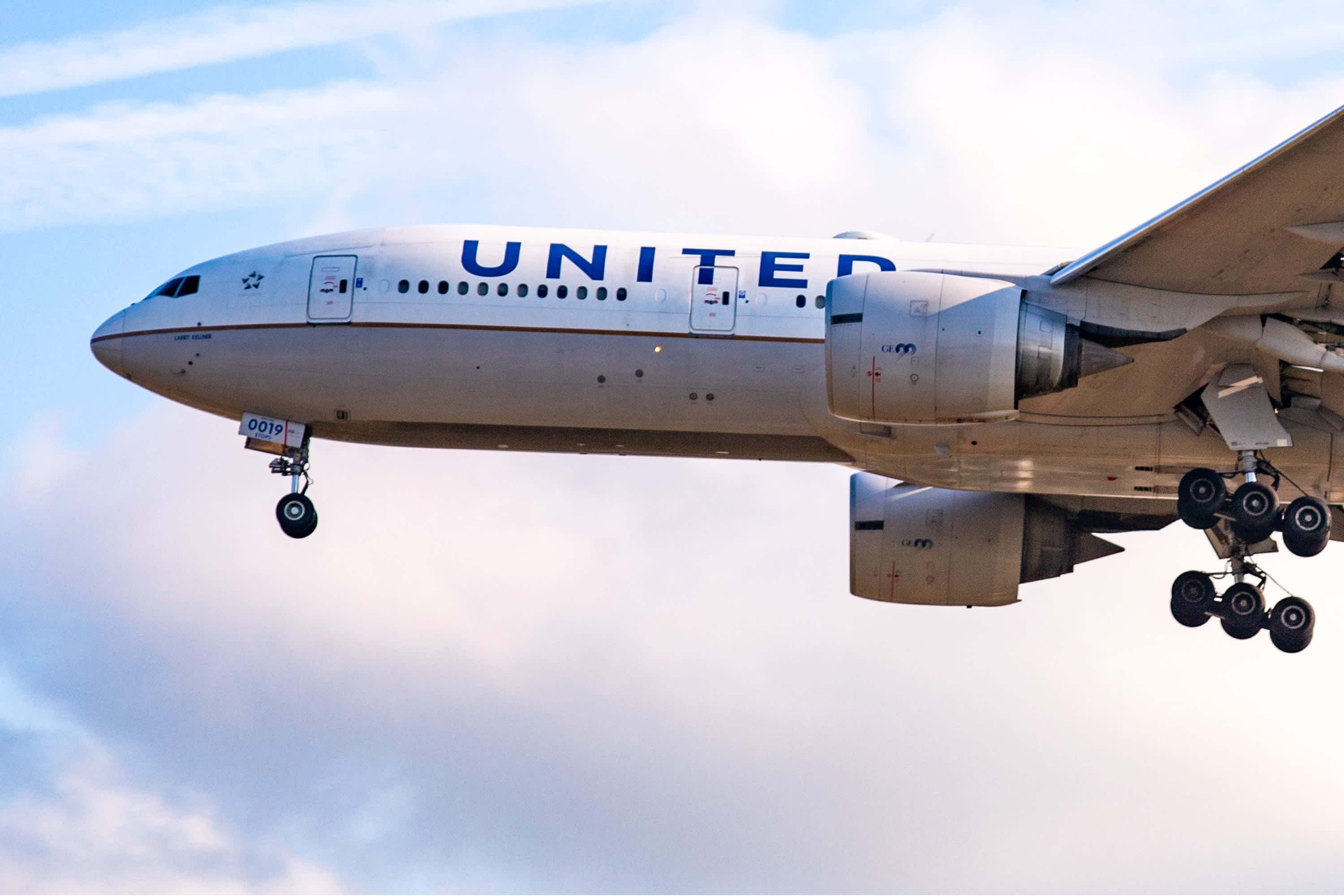United Airlines loses $1.6 billion in second quarter but expects to further lower cash burn

United Airlines on Tuesday said it lost $1.63 billion during the second quarter, driven by a plunge in air travel demand because of the coronavirus pandemic. During the same quarter last year it posted a $1.05 billion profit.
Revenue plunged to $1.48 billion in the three months ended June 30, an 87% drop from $11.4 billion during the same time last year. The sharp decline in sales wasn’t as bad as feared, beating analysts’ estimates of $1.32 billion.
The Chicago-based carrier and other large airline competitors that spent years building up their networks are grappling with what are expected to be long-lasting impacts from the pandemic.
United said it expects to reduce its cash burn to $25 million a day in the third quarter from an average daily burn of $40 million in the second quarter. The carrier has slashed thousands of flights and idled scores of planes to cut its costs.
The airline said its capacity in the third quarter will likely be down 65% compared with the same quarter a year ago.
A recovery in air travel is challenged by a spike in coronavirus cases around the U.S. as well as quarantine orders for travelers arriving from a host of states to New York, New Jersey, Connecticut and elsewhere.
United said it will “proactively evaluate and cancel flights on a rolling 60-day basis until it sees signs of a recovery in demand,” which executives expect to be limited until there is a treatment or vaccine for the virus.
“United believes it did the best job of matching actual capacity to demand among its largest network peers,” the airline said in its earnings release. “The company also expects to finish the quarter with the lowest average daily cash burn among large network carriers.”
United said it expects its flights to be a little less than half full in July, and no more than 15% of its flights will be over 70% full.
Airline employees are feeling the industry’s pain and thousands of jobs are on the line when the terms of federal payroll support for carriers expires on Oct. 1. United earlier this month warned 36,000 employees that their jobs are at risk this fall when the terms of federal payroll support expire in October.
The airline and other carriers are urging employees to take buyout packages with pay through November. United said some 6,000 have volunteered so far.
United’s payroll costs were $2.17 billion in the second quarter, down 29% from a year ago as staff worked fewer hours due to the reduced flight schedules and others took voluntary time off. Delta last week said its labor bill fell 24% in the second quarter to $2.09 billion “helped by more than 45,000 employees electing to take voluntary unpaid leaves.” The Atlanta airline had posted a second-quarter loss of $5.7 billion.
One bright spot for United was cargo. United said its cargo revenue jumped 36% from a year ago to $402 million after the airline added more than 4,800 cargo flights. That unit generated 27% of United’s revenue in the quarter, up from a less than 3% during the second quarter of 2019.
On an adjusted per-share basis United lost $9.31, compared with a $9.02 per-share loss expected by analysts polled by Refinitiv.
The airline said it expects to have liquidity of more than $18 billion after raising more than $16 billion since the start of the crisis through debt and stock sales, as well as federal aid.
United’s shares were up 0.2% in after-hours trading.
United will hold a call with analysts to break down its results and outlook at 10:30 a.m. ET on Wednesday.
Southwest Airlines and American Airlines are scheduled to report quarterly results before the market opens on Thursday.
Article Courtesy of CNBC
